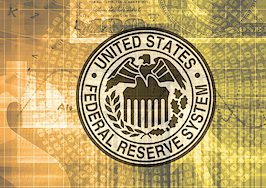- Since last Thursday’s announcement, there have been exceptional ripples around the global economy that were felt here in the U.S., too.
- The British government does not appear to be in any hurry to invoke Article 50 of the Lisbon Treaty, which allows a member country to leave the conglomerate.
- Any predictable effects on the U.S. will be limited to a “headwind” to growth, but not enough to drive us into a recession.
- My biggest concern for the U.S. is that the Federal Reserve must now pause its plans to raise interest rates -- and we need to normalize rates to prepare for a coming recession.
Reposted with permission from the Windermere Real Estate blog.
The decision of the British public to leave the European Union is a historic one for many reasons, not least of which was the almost uniform belief that there was absolutely no way that the public would vote to dissolve a partnership that had been in existence since the UK became a member nation back in 1973.
However, rightly or not, the people decided that it was time to leave.
As both an economist and native of the UK, I’ve been bombarded with questions from people about what impact Brexit will have on the global economy and U.S. housing market.
I’ll start with the economy.
Since last Thursday’s announcement, there have been exceptional ripples around the global economy that were felt here in the U.S., too. This isn’t all that surprising given that the vast majority of us believed that the UK would vote to remain in the EU; however, I believe things will start to settle down as soon as the smoke clears.
The only problem is that the smoke remains remarkably dense.
The British government does not appear to be in any hurry to invoke Article 50 of the Lisbon Treaty, which allows a member country to leave the conglomerate. Additionally, nobody appears able to provide any definitive data as to what the effect of the UK leaving will really have on the European or global economies.
As a result, you have those who suggest that it will lead to a “modest” recession in the UK, as well as extremists who are forecasting a return of the four horsemen of the apocalypse.
In reality, no one knows, and it is that type of uncertainty that feeds on itself and can cause wild fluctuations in the market.
It’s important to understand that last Thursday’s vote does not confirm an actual exit from the European Union. There is a prolonged process of leaving that is set out in the EU Treaty which requires a “cooling off” period. And during this time, even confident political leaders, such as Boris Johnson, who championed the exit campaign, might be tempted by reforms that would see Great Britain actually remaining in the EU.
The EU itself has been shaken by the vote, and there are already signs that many of its leaders are talking about moving away from the Federal structure of the Union in favor of a looser, intergovernmental agreement, which would allow greater sovereignty for its member states.
This is clearly an obvious attempt to accommodate what is already a groundswell of opposition to the Union that is much wider than just Britain, and now includes France, Spain, Greece and Portugal, all of whom are considering their own exits.
So what does this mean for the U.S.?
As far as any direct impact of the Brexit on the U.S. economy is concerned, I foresee a continued period of volatility given the aforementioned uncertainty.
That said, any predictable effects on the U.S. will be limited to a “headwind” to growth, but not enough to drive us into a recession. Our financial system is solid, and U.S. exposure to European debt is still limited.
I wouldn’t be surprised to see a slowdown in U.S. exports as the dollar continues to gain strength against European currencies, but those effects will be fairly modest.
As for the impact on housing, U.S. real estate markets could actually benefit. Uncertain economic times almost always lead to a “flight to safety,” which means global capital could pour into the United States bond market at an aggressive rate.
With this capital injection, the interest rate on bonds would be driven down, resulting in a drop on mortgage rates. And a drop in mortgage rates makes it cheaper to borrow money to buy a home.
On the flip side, one thing that concerns me about lower interest rates is that it could draw more buyers into the market, compounding already competitive conditions and driving up home prices. And housing affordability would inevitably take yet another hit.
Let’s not fool ourselves: What we’re seeing is a divorce between the UK and a majority of Europe. And like most divorces, there are no good decisions that will make everybody happy. We need to be prepared for the fact that it is going to be a very ugly, nasty, brutal, lawyer-riddled, expensive divorce.
My biggest concern for the U.S. is that the Federal Reserve must now pause in its desire to raise interest rates (I now believe that we will not see another increase this year as a result of Brexit). This is troubling, because we need to normalize rates in preparation for a recession that is surely on the way in the next couple of years.
The longer we put that off, the less prepared we will be when our economy eventually turns down.
Matthew Gardner is the chief economist for Windermere Real Estate. Follow him on Twitter @SeattleEcon.












